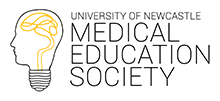ANKI GUIDE
HOW DOES IT WORK?
Anki uses a method of testing known as active recall, which basically involves being asked a question and then having to recall the answer without looking in your notes.
This is in contrast to passive study which may involve things like watching videos or re-reading and highlighting notes.
Active recall allows information to move from your short-term memory to your long-term memory so you can easily draw on this knowledge again when you need to. Not only this, but it also helps identify concepts you may not be as familiar with and should therefore review or re-learn.
Anki also uses spaced repetition, showing you new and difficult information more frequently. Once you have learnt this unfamiliar information, it will be shown less frequently.
If you learn something and do not review it, the forgetting curve will be exponentially decaying. However, if you review the information at increasingly spaced intervals, then the forgetting curve starts to flatten out, leading to better long-term retention.
A study found that after 1 year without spaced repetition, medical students forgot 33% of their basic science knowledge, and after 2 years, they forgot more than 50% of this knowledge.
Anki uses an algorithm that sorts information based on your responses to questions. If you get a question wrong, it will automatically prioritise that information for repetition over the information in questions you answered correctly.
In turn, this reduces your amount of study time but ensuring you are spending more time studying things you are less familiar with, rather than wasting it on information you can already reliably recall.
